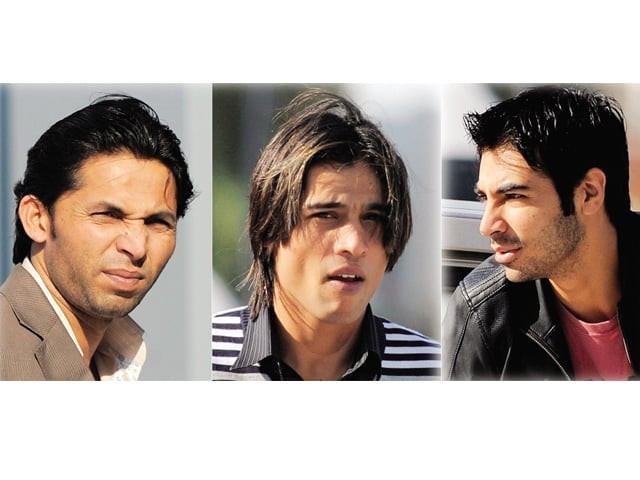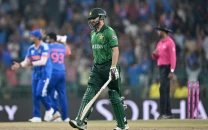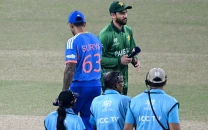Cricketers’ trial to start on May 20
Salman Butt, Asif and Aamir get unconditional bail.

A London court has granted unconditional bail to cricketers Salman Butt, Mohammad Amir and Mohammad Asif and set May 20 as the date for their spot-fixing trial.
Judge Howard Riddle of the City of Westminster Magistrates’ Court in London also granted bail to their agent Mazhar Majeed but ordered him to surrender his passport so he would not be able to leave the country before the trial, which will be held at Southwark Crown Court in London.
The hearing kicked off with charges read out in court asserting that Majeed accepted over Rs20 million (£150,000) from an undercover reporter to “fix” the actions of players during the fourth Test between England and Pakistan last August at Lord’s. Amir, Butt and Asif are accused of “cheating and conspiracy to obtain corrupt money” in bowling no-balls to order during the match.
Prosecutor Sally Walsh asked the court not to let any of the defendants leave England. Riddle – who also heard the founder of WikiLeaks Julian Assange’s case acknowledged the charges as “serious” but described the cricketers as being of “good character” and granted them unconditional bail.
The UK’s Crown Prosecution Service while authorising the charges against the four men last month had stressed that extradition would be sought should they fail to return to England. But Riddle said while Britain had no extradition treaty with Pakistan, any failure to show up for future court hearings would end their careers.
“Failing to attend these proceedings will destroy their chances of playing international cricket in the future,” said Riddle. “Their reputation is of the utmost importance. They have a very strong incentive to attend trial and to defend this.”
The ICC last month banned the trio for a minimum five years each.
If found guilty of accepting corrupt payments, they could face a maximum sentence of seven years’ imprisonment and/or an unlimited fine under the Prevention of Corruption Act 1906. “Cheating” is also an offence and carries a maximum sentence of two years’ imprisonment and/or an unlimited fine under Section 42 of the Gambling Act 2005.
Published in The Express Tribune, March 18th, 2011.



















COMMENTS
Comments are moderated and generally will be posted if they are on-topic and not abusive.
For more information, please see our Comments FAQ